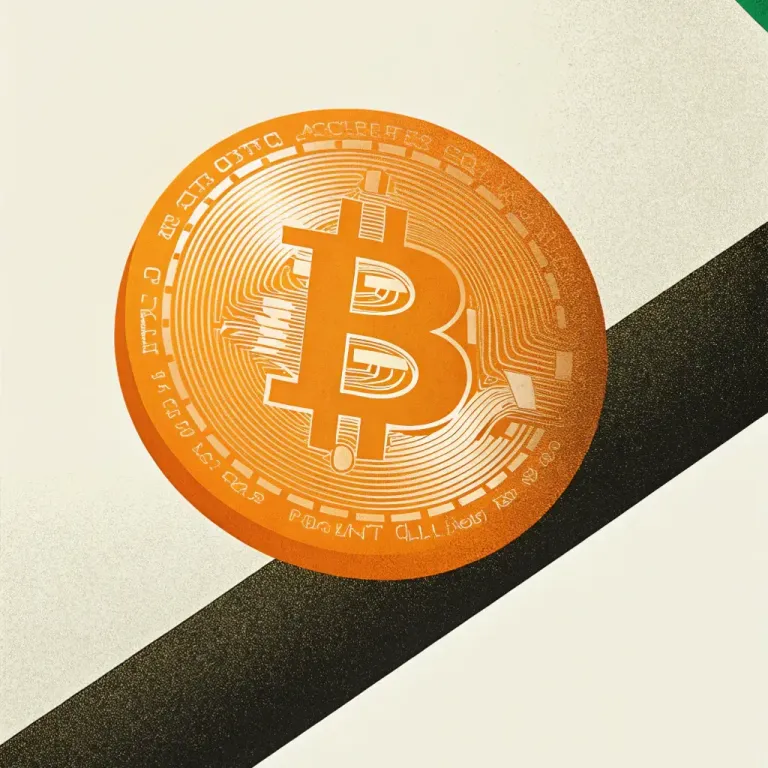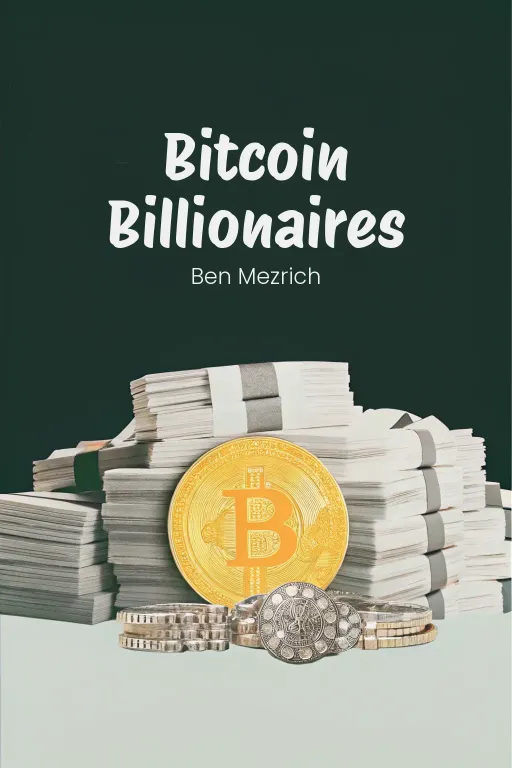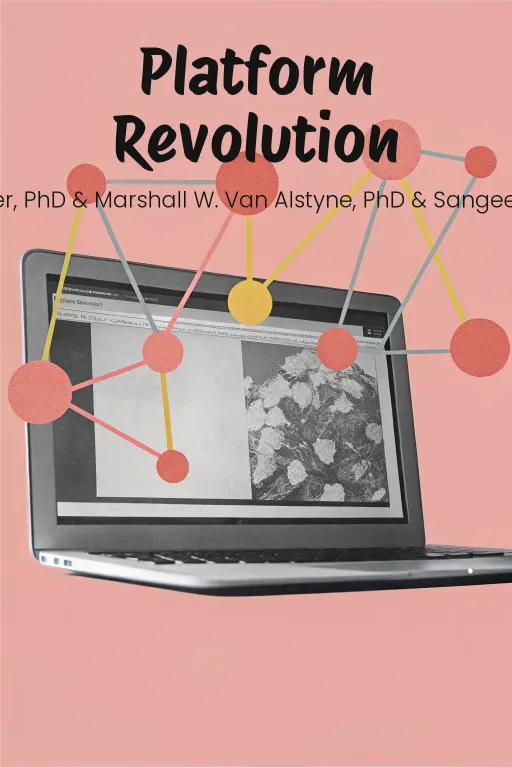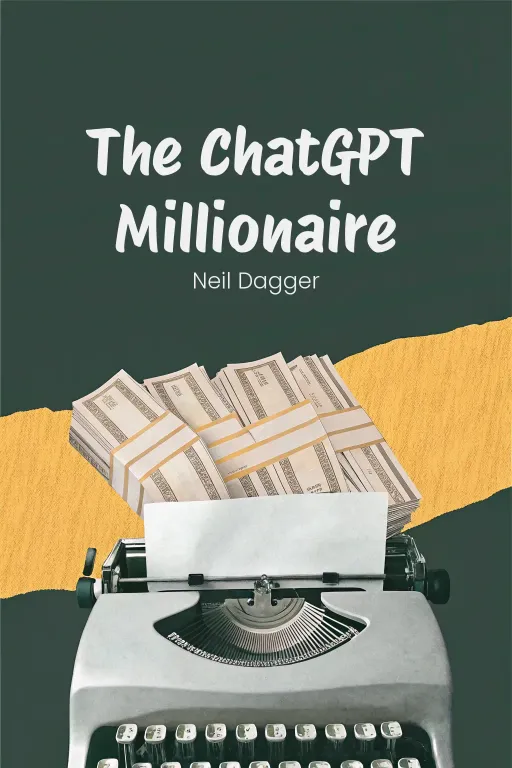
Crypto Comeback: Twins Turn the Tables?
Podcast by Let's Talk Money with Sophia and Daniel
A True Story of Genius, Betrayal, and Redemption
Crypto Comeback: Twins Turn the Tables?
Part 1
Daniel: Hey everyone, welcome! Today we've got a story that’s part tech redemption, part financial revolution, and totally fascinating. Picture this: two brothers, once known for a big Silicon Valley "almost," suddenly find themselves leading the cryptocurrency movement. Pretty interesting, right? Sophia: Yeah, and let’s not forget who these brothers are. We’re talking about the Winklevoss twins—yes, the Harvard rowers, the lawsuit-famous "almost" founders of Facebook. I mean, this is quite the pivot, isn't it? From losing the social media battle to, it seems, winning the Bitcoin war. But here's what I'm really wondering, Daniel: was this pure genius, or just being in the right place at the right time? Daniel: That’s a great question, Sophia, and that’s exactly what we’re going to dig into today. We're talking about "Bitcoin Billionaires," the book that tells how Tyler and Cameron Winklevoss turned their losses into wins, going from the shadows of the Facebook drama to key players in crypto. It covers everything from financial shake-ups to reinventing yourself. Sophia: Exactly, and we’re going to break it down into three digestible parts. First, we'll look at the twins’ personal journey—their struggles after Facebook and their bold move into the wild world of Bitcoin. Then, we're diving into Bitcoin itself—its potential to disrupt, and whether it's really the tech they believed could change the rules of money. Lastly, we’ll discuss what their crazy journey tells us about the future of cryptocurrency and finance in general. Daniel: It's a lesson in bouncing back, spotting opportunities in chaos, and asking the big question: Can crypto really reshape the global financial system, or is it just another rich-person gamble? Sophia: Right, and can we really attribute the Winklevoss twins' success to their resilience—or is it simply easier to take risks when you're already sitting on $65 million? I’ve got some thoughts on this, Daniel, and they’re not all sunshine and roses. Daniel: I wouldn’t expect them to be, Sophia! So, everyone, buckle up, because this is a story about innovation, redemption, and chasing a second act that could change how we think about money forever.
The Winklevoss Twins' Journey from Adversity to Innovation
Part 2
Daniel: Okay, so let's dive into the Winklevoss twins' story, right from the start . You know, the early hurdles and, of course, that infamous Facebook dispute . It really sets the tone for everything else that unfolds . I mean, here we have Tyler and Cameron Winklevoss: Harvard grads, Olympic rowers, and, let’s face it, pretty much the definition of privilege . But even with all that, they found themselves in this very public clash with Mark Zuckerberg, which, let's be honest, didn’t exactly win them any fans . Sophia: Exactly . And "The Social Network" definitely didn’t do them any favors ! The movie kind of portrayed them as these out-of-touch, entitled guys—you know, the sore losers who were outsmarted by Zuckerberg . Talk about a biased story . But Daniel, how much of that image was actually accurate ? Or how much was just Hollywood dramatization ? Daniel: Well, there's no denying they came from a privileged background—rowing teams, Ivy League, the connections . But the real situation is more complex than that . They had this idea for a social network called "ConnectU," and they honestly believed Zuckerberg took their concept . And the courts seemed to agree, awarding them a $65 million settlement . But even with that win, the public still saw them less as "geniuses who were proven right" and more as "whiny rich kids ." Sophia: Okay, but let's be real, $65 million is still a pretty sweet consolation prize, you know, for "losing" a tech race . Most people don't get that kind of "failure ." But I'll give them this: instead of just quietly enjoying their millions, they decided to make a pretty big bet on Bitcoin . It's got to take guts . Daniel: Absolutely, Sophia . For the twins, the Facebook thing wasn’t just a lawsuit or a check—it was a wake-up call . They realized they were stuck in this narrative, always going to be "the guys who lost to Zuckerberg ." They needed something new, something groundbreaking, to change how people saw them . And that's where Bitcoin came in . Sophia: Ah yes, the famous Ibiza moment in 2012 . You couldn’t make this up – two ex-Olympians with an interest in investment, relaxing in the Mediterranean sun, and they learn about Bitcoin . So Daniel, is this just a case of being at the right place, at the right time, you know, with the right trust funds ? Or is this real genius ? Daniel: It’s a combination of both, I think . Sure, their wealth gave them the ability to take risks that most people couldn’t, but it was also their vision . They saw the potential of Bitcoin when most people dismissed it as some fringe experiment . And let’s also remember the context—Bitcoin came about after the 2008 financial crisis, when people were really losing trust in traditional systems like banks and governments . Sophia: Right, and the whole idea behind Bitcoin was to cut out those middlemen—you know, no banks or central authorities needed—because of its blockchain technology . For the twins, it wasn’t just about putting money into Bitcoin; it was about buying into the idea of decentralization . But did they really understand the technology, or were they just excited by the idea of challenging the establishment ? Daniel: I think they really did their research . The blockchain, as you said, is this decentralized record that keeps track of all transactions safely and openly . The twins understood that this wasn’t just another currency—it was a chance to completely change how finance works . And also, they put $11 million into Bitcoin when it was trading at, like, $120 a coin . That’s a real commitment, especially considering Bitcoin wasn’t exactly known for being stable at the time . Sophia: True, but let’s talk about the situation that they were entering . Back in 2012, Bitcoin was downright controversial, not just unknown . There were questionable platforms like Silk Road using it for illegal deals, and the tech scene itself was divided on it . Honestly, Daniel, wasn’t this more of a gamble than an investment ? Daniel: It was definitely high risk . The twins faced skepticism from the public and even within the tech community . But that skepticism actually made them more determined . They didn’t just put money on the line—they really immersed themselves in the crypto world . You know, learning everything they could and making connections . And that's where Charlie Shrem comes into the picture . Sophia: Ah, Shrem . Now, he is a complicated guy . He was running BitInstant, a Bitcoin exchange that made it easier for people to buy crypto . The twins saw potential and invested $1.5 million . It seemed like a smart partnership at first—Shrem was an early Bitcoin enthusiast with technical knowledge . But, Daniel ... he wasn’t exactly running a clean business, was he ? Daniel: Unfortunately, no, he wasn't . Shrem was later arrested for his involvement with illegal transactions on Silk Road . For the twins, it was a stark reminder that the crypto world was still like the Wild West . But instead of backing down, they doubled down on their mission to make Bitcoin legitimate . They started focusing more on compliance and regulation, which eventually led to Gemini, their cryptocurrency exchange . Sophia: So, let me just make sure I understand – they went from investing in a platform associated with the crypto underworld, to building one of the most regulated exchanges in the market ? That’s a hard turn . But isn’t a little ironic ? You know, Bitcoin is all about avoiding regulations, yet the twins became the spokespeople for following the rules . Daniel: It’s ironic, but it’s also strategic . They understood that if Bitcoin was going to be successful worldwide, it couldn’t stay an outsider currency . It needed to be seen as trustworthy, secure, and something that mainstream investors could use . Gemini was their way of making that happen—providing a platform that embraced regulation while still being innovative . Sophia: All right, Daniel, I will admit that they had foresight . They saw the big picture . But I still think this raises a question: Can you really disrupt a system if you’re also trying to legitimize it ? Were the twins trying to start a revolution, or just find a new way to make money within the existing system ?
Bitcoin's Revolutionary Impact on Finance
Part 3
Daniel: You've hit on a really key tension here, Sophia that tricky balance between true innovation and just being co-opted. Let's rewind a bit and think bigger about what Bitcoin “means”. It wasn't only created as a different kind of money, right? It was designed to push back against the flaws in how traditional finances work. And that's where the Cyprus financial crisis back in 2013 becomes such an important example. Sophia: Right, the “haircut,” as they called it. For anyone who doesn't remember, banks in Cyprus froze everyone's accounts and basically took a chunk of the big deposits to save the economy. Suddenly, people realized their money wasn't really theirs. It was locked away, totally at the mercy of banks and governments. Pretty scary thought. Daniel: Exactly. That was a real wake-up call for many about how vulnerable centralized finance can be. And Bitcoin, with its whole decentralized setup, was the stark opposite of that. Unlike regular money, where central banks can just print more or freeze things, Bitcoin has a fixed supply – 21 million coins, and that's it. That scarcity, combined with how you can send it directly to someone else, makes it tough to inflate and resistant to interference. People fled to Bitcoin in Cyprus because it was a way out from under government control. Sophia: I get why that's appealing, Daniel, but it still feels pretty niche. I mean, how many people are “really” escaping authoritarian regimes or unstable economies? Does that really grab the average person with a savings account? Daniel: Good point. Not everyone is facing an economic crisis. But think about the bigger shift here. Even for people in stable economies, Bitcoin offers a type of financial self-ownership – breaking away from a system where every decision about your money depends on someone else's rules or their goodwill. It’s about taking the reins of your own financial future. Sophia: Okay, but let's not ignore the elephant in the room. Bitcoin “promised” decentralization, sure, but it was also known for years as the currency of criminals – money laundering, drugs, the Silk Road, all that stuff. It wasn’t just paranoia. You kinda “have” to talk about the dark side of Bitcoin. Daniel: Absolutely, and Silk Road really did a number on Bitcoin's reputation early on. It was a marketplace for all sorts of illegal stuff, made easier by Bitcoin's anonymity. That's exactly why people like the Winklevoss twins knew they had to clean up Bitcoin’s image if they want it to go mainstream. Sophia: Ah, and that's where Gemini comes in, right? I mean, the Mt. Gox collapse in 2014 made it super clear that crypto wasn’t ready for prime time. When 850,000 Bitcoin just “vanished” in that hack – worth hundreds of millions – it screamed, "This whole market is too volatile and risky!" The twins definitely saw a problem and went straight for it with Gemini, giving crypto a much-needed air of legitimacy. Daniel: Exactly. Mt. Gox was a disaster – a stark reminder that security and trust were major missing pieces in early cryptocurrency exchanges. With Gemini, they aimed to solve that. They made sure the platform followed anti-money laundering laws and "know your customer" rules. By operating under the scrutiny of bodies like the New York State Department of Financial Services, Gemini was positioned not just as an exchange, but as a bridge between the crypto world and traditional financial systems. Sophia: Here's the thing, though—it feels a bit like taming a wild beast. Bitcoin's appeal was that it operated outside traditional oversight. So when you create an exchange that plays ball with regulators, doesn't that kind of defeat the purpose of decentralization? It's like saying, "We want revolutions… but with regulatory approval." Daniel: It's a valid critique, Sophia, but this is where you have to zoom out and think about scalability. If Bitcoin stayed purely in its renegade phase, it would’ve remained niche—a playground for enthusiasts and speculators. By making Gemini compliant and user-friendly, the twins opened the door for more skeptics, institutional investors, and honestly, everyday people, to engage with it. Sophia: Sure, but critics would argue that this compromises its foundational promise—to upend centralized power. Instead of bypassing the giants of traditional finance, Bitcoin started cozying up to regulators, banks, and even hedge funds. It’s like the rebels getting a corporate sponsor. Are we still dismantling systems here, or just dressing them up in crypto? Daniel: That’s where the nuance comes in. Bitcoin may have grown cozier with the establishment, but its principles—decentralization, transparency, and autonomy—still challenge the way we think about money. It’s not an all-or-nothing scenario. The Winklevoss twins understood that for crypto to survive, let alone thrive, it needed to evolve as both a disruptive technology and a legitimate financial tool. That’s why Gemini’s regulatory stance isn’t a betrayal of Bitcoin’s ethos—it’s a step toward its larger acceptance. Sophia: Larger acceptance, sure, but how far can you stretch those principles before they blend into the old system they were supposed to replace? Can decentralization ever really go hand in hand with regulation—or is that just asking for the best of both worlds? Daniel: It’s an open question, Sophia, and one the crypto world will probably grapple with for years to come. What’s undeniable, though, is the seismic shift Bitcoin has triggered—not just on the technical front with blockchain, but as a statement on financial autonomy. Bitcoin has pushed us to reconsider who holds power in our economic systems, and whether individuals can—and should—take that power back. Sophia: And where the Winklevoss twins fit into that shift is equally fascinating. They took immense financial risk, sure, but they also calculated it in a way that bridged idealism and pragmatism. Whether you see them as visionaries or opportunists—or maybe a bit of both—they undeniably helped bring Bitcoin closer to the mainstream. Daniel: They did, and perhaps their duality is a reflection of what crypto itself represents. It’s a battleground of contradictions—revolutionary yet structured, liberating yet sometimes divisive. What they’ve shown is that in navigating this space, you can advocate for change while still playing within the rules. It’s messy, but it’s progress.
Redemption and the Future of Decentralized Systems
Part 4
Daniel: And that really makes you think about how their own journey kind of mirrors this bigger shift towards decentralized finance, doesn't it It's like their personal redemption is all tangled up with the future of these decentralized systems I mean, the Winklevoss twins going from being sort of Silicon Valley outcasts to being crypto pioneers It's not just a business story; it’s a reflection of this whole cultural move away from centralized, top-down control and towards empowering individuals through decentralization It’s about reinventing things, both personally and systemically. Sophia: We’re talking about a massive shift, a real sea change, moving away from "trusted authorities" – banks, governments, you name it – towards systems that are inherently, well, trustless Where the math, the code, and that beautiful blockchain are calling the shots Daniel, can we really separate the story of their personal redemption from the evolution of this technology Are we maybe being a little too romantic about both the twins and Bitcoin here? Daniel: I don’t think it's about being overly romantic It's about seeing how these individual stories intersect with a very real desire for alternatives in society Think about it: the Winklevoss twins were almost like caricatures of entitled guys who lost out with Facebook But they refused to be defined by that, diving headfirst into something that was seen as fringe, dangerous, even ridiculous And Bitcoin, back in 2012 People dismissed it as fake money, a playground for hackers and criminals Both the twins and Bitcoin faced massive skepticism and then, in a way, reinvented themselves If that's not a parallel redemption story, I don't know what is. Sophia: Okay, fair enough But a skeptic might point out that the twins’ so-called redemption has a pretty big dollar sign attached to it Whereas Bitcoin's is, well, more about the ideology I mean, Tyler and Cameron didn’t just stumble into blockchain altruism, right They saw the potential for major profit Let's look at those 2013 numbers Bitcoin at $120, and bam—they throw in $11 million Great timing, fantastic PR, but is being early the same as being genuinely bold? Daniel: I think they were both early and bold, Sophia Let's not forget, in 2013, Bitcoin wasn't just speculative—it was almost scandalous You had Silk Road dominating headlines, regulators looking at the space with major suspicion, and crashes happening all the time For the twins to publicly back it with millions wasn't just a financial gamble; it was a risk to their reputations, too We shouldn’t ignore what they recognized in its potential Bitcoin wasn't just a quick way to get rich for them—it was a real statement of belief in decentralized systems. Sophia: A statement, sure—but they didn't just blindly jump in They invested, they strategized, and they pivoted when things got messy—cue the Charlie Shrem saga Daniel, let's talk about Shrem as a prime example of how chaotic those early days of crypto really were For our listeners, Shrem ran BitInstant and was crucial in making Bitcoin accessible to the masses The twins partnered with him to boost adoption, but it turned out his operation had some, shall we say, "ethical question marks" How do you think that whole episode shaped their approach moving forward? Daniel: I think it was a defining moment, Sophia Shrem's connections to illicit transactions, especially through Silk Road, really highlighted just how volatile, and frankly dangerous, the early crypto industry could be But instead of panicking or pulling back, the twins doubled down, focusing on building legitimacy Their response was very deliberate: create a fortress of trust—a compliant, secure exchange where Bitcoin could mature and be taken seriously That's how Gemini was born It wasn't just window dressing or security theater; it was a genuine effort to clean up the space. Sophia: Cleaning up, or strategically cleaning “house”? Because Gemini was more than just a platform—it was, in a way, the twins rewriting Bitcoin's narrative After the Mt Gox debacle, they knew Bitcoin had a PR problem They weren't content to just let the technology do its thing They realized they needed to make crypto palatable to institutions, hedge funds, skeptics like me, the average person But Daniel, isn't that a little... contradictory to Bitcoin's original spirit I mean, decentralization with a regulatory thumbs-up Feels a bit like an oxymoron. Daniel: Sure, there’s an irony there—but it’s also evolution, Sophia The decentralized ethos of Bitcoin doesn’t have to conflict with regulation; they can coexist Gemini showed that you can uphold the core values of financial sovereignty while addressing very real-world concerns like fraud and security Think of their embrace of regulation as a way to actually scale decentralization Without that bridge to legitimacy, Bitcoin might have just stayed on the fringes. Sophia: Maybe, but I think you’ve just nailed the underlying philosophical tension here Regulation feels like an old-world solution to a new-world problem, right If Bitcoin was a rebellion, is Gemini basically the rebels putting on suits and ties? Daniel: I don’t see it as a compromise so much as a strategy The twins understood that you can’t completely disrupt a system without meeting it halfway—at least at first Remember what happened with the Cyprus financial crisis That was Bitcoin’s first real moment of genuine validation, where its decentralized, untouchable qualities really shone But for it to go from being something niche to something globally relevant, it needed more than a philosophical appeal—it needed infrastructure. Sophia: Alright, let's dig into Cyprus for a minute, because it's a case that really highlights Bitcoin's potential In 2013, when the Cypriot government stepped in and seized savings as part of an economic bailout, people suddenly realized that the money they thought was safe in banks actually wasn't Suddenly, this volatile, misunderstood thing called Bitcoin started to look a lot more secure Daniel, was that Bitcoin stepping up as the hero, or were people just desperately grabbing at anything that wasn't the banks? Daniel: It was probably a little of both, to be honest The Cyprus crisis definitely woke people up to the inherent fragility of centralized systems I mean, when the government can literally just confiscate your savings, the idea of a currency that's decentralized—one that no government can touch—becomes incredibly attractive Bitcoin wasn't just a speculative investment; it represented freedom, in a way People began to see it as a lifeline, not just some asset to trade. Sophia: But Bitcoin's ability to be a lifeline relies on people trusting the technology, right The blockchain is supposed to be tamper-proof, but let's be honest, Daniel – it's also really complicated for most people The promise of autonomy is great, but for your average person, doesn't the complexity of crypto feel like a barrier I'm just picturing my parents trying to figure out blockchain, and… well, it's not a pretty picture. Daniel: That’s a fair point, Sophia Despite all its potential, Bitcoin definitely has a usability problem That's where platforms like Gemini come in – to try and make crypto more accessible without dumbing it down too much The twins weren't just building a business—they were also trying to educate the public, really They understood that wide-scale adoption depends on demystifying blockchain while also effectively communicating its value And yes, it's still definitely a work in progress. Sophia: So, we're back to this idea of bridges – where the twins are acting as middlemen between the wild, untamed frontier of Bitcoin and the structured, regulated world of traditional finance I get the intention, Daniel, but here's my question: Can you grow Bitcoin without sacrificing its rebellious heart Or does mass adoption inevitably dilute its original essence? Daniel: It’s a really delicate balance, Sophia Decentralized systems are, by their very nature, about distributing power and getting rid of gatekeepers But for them to genuinely reshape the global financial landscape, they need scale And that inevitably means bringing in people who don't necessarily care about cypherpunk ideals, but do care about things like stability and ease of use The Winklevoss twins seem to understand this nuanced dance—making crypto safer and more accessible while hopefully not neutering its transformative potential. Sophia: Nuanced, sure – but as you said, still messy So, where do we end up, Daniel Are we looking at Bitcoin and the Winklevoss twins as the architects of a financial revolution, or are they just adapting that old saying—"If you can’t beat 'em, build something better and sell it back to 'em"? Daniel: You know, maybe it’s a bit of both, Sophia Bitcoin's rise, and the twins' journey alongside it, reflect an undeniable shift: a push toward decentralization, transparency, and greater autonomy But revolutions don’t necessarily have to tear everything down to succeed Sometimes, they evolve, finding ways to coexist while challenging the status quo The really interesting thing about this story is that it's potentially setting the stage for a financial system that feels more inclusive and resilient, but still has the potential to disrupt things.
Conclusion
Part 5
Daniel: So today, we talked about the Winklevoss twins, right? It's quite a story, their journey from that whole Facebook drama to becoming major players in Bitcoin. I mean, talk about turning things around! They really showed how resilience and a clear vision can transform setbacks into opportunities. Going from being seen as Silicon Valley outsiders to becoming respected leaders in the crypto world is pretty remarkable. Sophia: Yeah, it's quite the redemption arc. And we dove into Bitcoin itself, this idea of decentralizing finance. Early on, of course, it was riddled with controversies. And the irony, Daniel, is that to gain legitimacy—through platforms like Gemini—it had to cozy up to the very institutions it was trying to disrupt in the first place. Daniel: Exactly! It's not just about their personal comeback, but it's also mirrored in the broader shift in society. Both the twins and Bitcoin represent a growing desire for alternatives, a skepticism towards traditional systems, and a real hunger for more control, autonomy, and trust in our financial lives. It really makes you think, doesn't it? Sophia: It does. But here's the big question: Can we “really” scale decentralization without compromising its core principles? Can you have a currency rooted in rebellion that also plays nice with regulations without losing its essence? It seems like a fundamental question. Daniel: It's a huge, complex question, definitely. One worth asking. Whether you're a true believer in crypto or still a skeptic, maybe the key takeaway is that true innovation and redemption rarely happen without facing some obstacles. Sophia: Agreed. And look, whether you see the Winklevoss twins as shrewd opportunists or genuine visionaries, there's no denying they've been instrumental in pushing crypto into the mainstream conversation. Love them or hate them, they've definitely left their mark on the narrative of financial transformation. Daniel: Absolutely. So, as we consider Bitcoin, the Winklevoss twins, and the evolving nature of money, maybe we should ask ourselves: What's the real cost of innovation, and who gets to determine its true worth? Sophia: Perfect food for thought, Daniel. Listeners, that should keep you going for a while. Daniel: Definitely, Sophia. Thanks for tuning in everyone. Until next time, keep questioning, keep learning, and keep exploring new possibilities.









